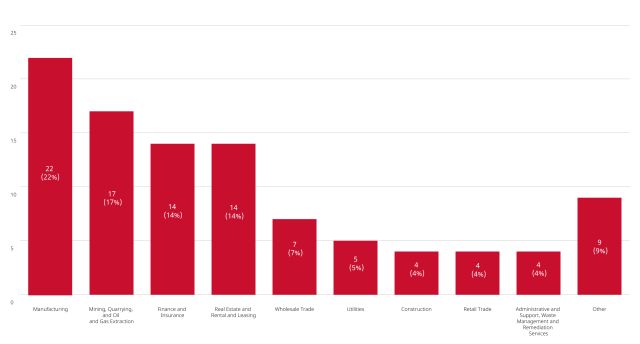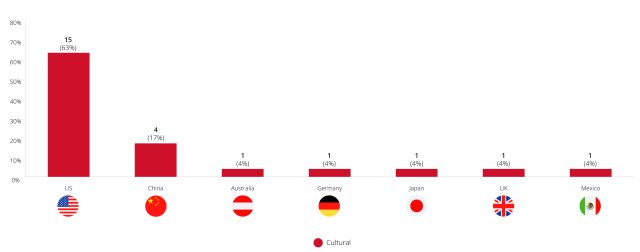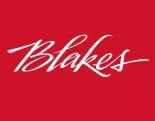Welcome to the August issue of Blakes Competitive Edge, a monthly publication of the Blakes Competition, Antitrust & Foreign Investment group. Blakes Competitive Edge provides an overview of recent developments in Canadian competition law, including updates on enforcement activity by the Canadian Competition Bureau (Bureau), recent initiatives and key trends.
Key Highlights
- Merger review activity in 2023 remains slow. With only 13 mergers reviewed in July 2023, the month had less merger review activity than any July in the last decade. Considered on a year-to-date basis, the Bureau has completed only 100 merger reviews through the end of July 2023, 23% fewer than the number completed in July 2022 (130) and 22% fewer than the number completed in July 2021 (128).
- The Bureau enters into a consent agreement with Shell Canada Limited (Shell) to resolve the Bureau's concerns relating to Shell's proposed acquisition of retail gas stations from Sobeys Capital Incorporated.
- Performance Measurement and Statistics Report shows a decrease in merger review activity in the Bureau's 2022 to 2023 fiscal year, but a significant increase in the number of mergers classified as "complex" during the review process.
- Transport Canada publishes its final guidelines regarding merger reviews under section 53.1 of the Canada Transportation Act.
Merger Monitor
July 2023 Highlights
- 13 merger reviews completed
- Primary industries: real estate and rental and leasing (23%); mining, quarrying, and oil and gas extraction (15%); manufacturing (15%); information and cultural industries (15%)
- Seven transactions received an Advance Ruling Certificate (54%); six transactions received a No Action Letter (46%)
January – July 2023 Highlights
- 100 merger reviews completed
- Primary industries: manufacturing (22%); mining, quarrying, and oil and gas extraction (17%); finance and insurance (14%); real estate and rental and leasing (14%); wholesale trade (7%); utilities (5%)
- Two consent agreements (remedies) registered
- One judicial decision
- 43 transactions received an Advance Ruling Certificate (43%); 54 transactions received a No Action Letter (54%)
Merger Reviews Completed Year to Date in 2023 by Primary Industry

Merger Enforcement Activity
Bureau reaches consent agreement with Shell relating to its acquisition of Sobeys gas stations
- On July 31, 2023, the Bureau announced that it had entered into a consent agreement with Shell and its affiliates related to Shell's proposed acquisition of 56 retail gas stations from Sobeys Capital Incorporated. To resolve the Bureau's concern that the transaction would substantially lessen competition in the supply of fuel to retail customers in Brooks, Alberta and in Fort St. John and Mission (including Silverdale), British Columbia, Shell agreed to divest assets relating to three retail gas stations.
Bureau approves buyers of Domtar Corporation mills related to acquisition of Resolute Forest Products Inc.
- On August 2, 2023, the Bureau approved Dryden Fibre Canada, ULC as the buyer of Domtar Corporation's (Domtar) pulp mill in Dryden. The Bureau also approved Atlas Holdings LLC as the buyer of Domtar's pulp and paper mill in Thunder Bay. These divestitures were required under a consent agreement between Domtar and the Bureau in connection with Domtar's acquisition of Resolute Forest Products, Inc. For more information on the December consent agreement, see the January edition of Blakes Competitive Edge".
Non-Enforcement Activity
Transport Canada publishes guidelines with respect to merger reviews under section 53.1 of the Canada Transportation Act
- In July 2023, Transport Canada published guidelines with respect to its typical process in merger reviews under sections 53.1 to 53.6 of the Canada Transportation Act. Section 53.1 of the Canada Transportation Act obligates persons subject to a pre-transaction notification requirement under the Competition Act (Act) to also simultaneously notify the Minister of Transport (Minister) regarding the transaction. These new guidelines are largely consistent with the draft guidelines Transport Canada published in June 2008. The guidelines set out the public interest factors the Minister will consider while reviewing a transaction and the information that should be included in the public interest impact assessment that parties are required to submit alongside their other notification materials.
Competition Bureau releases Performance Measurement & Statistics Report for 2022 to 2023 fiscal year
The Bureau released its Performance Measurement & Statistics Report (PMSR) for the 2022 to 2023 fiscal year (April 1, 2022 to March 31, 2023). Highlights of the PMSR include:
- Bureau received 194 pre-merger notification filings pursuant to section 114(1) of the Act and Advance Ruling Certificate (ARC) requests pursuant to section 102 of the Act. This represents a decrease of 52 filings from the 2021 to 2022 fiscal year.
- 13 Supplementary Information Requests were issued pursuant to section 114(2) of the Act for concluded matters. This is sightly higher than in previous years (nine were issued in 2021 to 2022; 11 in 2020 to 2021).
- 98.5% of the 128 non-complex merger reviews were completed within the Bureau's 14-day service standard, down from 100% in 2021 to 2022. The average duration of non-complex merger reviews was 10.06 days in 2022 to 2023, up from 9.12 days in 2021 to 2022.
- 92% of the 72 complex merger reviews were completed within the Bureau's service standard (45 days or, where a Supplementary Information Request is issued, 30 days after responses are provided). This was a decrease from 94.5% in 2021 to 2022. The average complex merger review in 2022 to 2023 took 38.75 days, similar to 2021 to 2022, when the average complex merger review took 38.39 days.
- 36% of reviewed mergers were designated as "complex" in 2022 to 2023, significantly up from 2021 to 2022, when 24% of reviewed mergers were considered complex.
Section 36 Remedies Under the Competition Act
Federal Court rules that there is no contravention of section 52 in battery labels case
- On July 6, 2023, in Energizer Brands, LLC v. Gillette Company, the Federal Court allowed, in part, an action by the plaintiff Energizer Brands, LLC (Energizer) against the defendants Duracell Canada, Inc. (Duracell), finding that Duracell's use of Energizer's trademarks in comparative advertising on packaging labels contravened section 22 of the Trademarks Act. However, the Federal Court dismissed the plaintiff's claim under section 36 of the Competition Act based on allegations that Duracell's advertising contravened section 52 of the Act. The labels at issue made certain claims regarding the performance of Duracell's batteries compared to those of Energizer. Based on several factors, including battery testing evidence presented to the court, the Federal Court ruled that there was a reasonable basis for Duracell's claims on the at-issue labels, and therefore the claims were not false or misleading in a material respect.
British Columbia Court of Appeal rules that pleading and proof of express reliance is not required for claims under sections 52 and 36 of the Act
- On July 7, 2023, in Live Nation Entertainment, Inc. v. Gomel, the British Columbia Court of Appeal (BCCA) allowed in part the plaintiff's cross-appeal of the British Columbia Supreme Court's (BCSC) certification decision, finding that the BCSC erred by refusing to certify the plaintiff's claims under sections 36 and 52 of the Act. The plaintiff alleged that the defendants had made representations to the public that they provided consumers with a fair opportunity to acquire event tickets, prohibited the use of ticket bots and enforced ticket purchasing limits for the purpose of promoting a business interest, and that such claims were knowingly or recklessly made and "false or misleading in a material respect," contrary to section 52 of the Act. The BCSC declined to certify this claim on the basis that the plaintiff had failed to plead detrimental reliance on these representations. The BCCA, relying on Valeant Canada LP/Valeant Canada S.E.C. v. British Columbia, held that the plaintiff did not need to plead and prove detrimental reliance to make out a claim under section 36 of the Act if they pled another way to establish a causal link between the alleged breach and any loss suffered. Given that the plaintiff had pled a general inflationary effect theory of causation that the BCCA found was not doomed to fail, the BCCA held that the BCSC had erred in declining to certify the plaintiffs' claims under section 36 of the Act on this basis.
Investment Canada Act
Non-Cultural Investments
Highlights
- Information regarding Investment Canada Act decisions since March 2023 has not yet been published and will be addressed in a subsequent edition of Blakes Competitive Edge.
Cultural Investments
Q1 2022 Highlights
- Four reviewable investment approvals and nine notifications filed (six for acquisitions and three for the establishment of a new Canadian business)
- Country of origin of investor: U.S. (62%); China / Hong Kong (23%); Germany (8%); Mexico (8%)
Q2 2022 Highlights
- Two reviewable investment approvals and nine notifications filed (seven for acquisitions and two for the establishment of a new Canadian business)
- Country of origin of investor: U.S. (64%); Australia (9%); China / Hong Kong (9%); Japan (9%); U.K. (9%)
Q1 to Q2 2022 Highlights
- Six reviewable investment approvals and 18 notifications filed (13 for acquisitions and five for the establishment of a new Canadian business)
- Country of origin of investor: U.S. (63%); China / Hong Kong (17%); Australia (4%); Germany (4%); Japan (4%); U.K. (4%); Mexico (4%)

Blakes Notes
- On August 8, 2023, Jonathan Bitran joined Blakes as a Partner in our Competition, Antitrust & Foreign Investment group. Jonathan has over a decade of experience and recently completed a two-year secondment at the Competition Bureau. Read his bio here.
- Blakes recently published an updated version of our Toolkit for Merger Planning and Review: A Guide to Getting Your Deal Done in Canada. This toolkit outlines the key competition law issues a company may face when carrying out mergers and acquisitions in Canada. It also offers practical guidance on deal preparation, negotiations and the merger review process. For more information, click here.
- Browse our thought-leadership insights from the Competition, Antitrust & Foreign Investment group to learn more.
For permission to reprint articles, please contact the Blakes Marketing Department.
The content of this article is intended to provide a general guide to the subject matter. Specialist advice should be sought about your specific circumstances.

